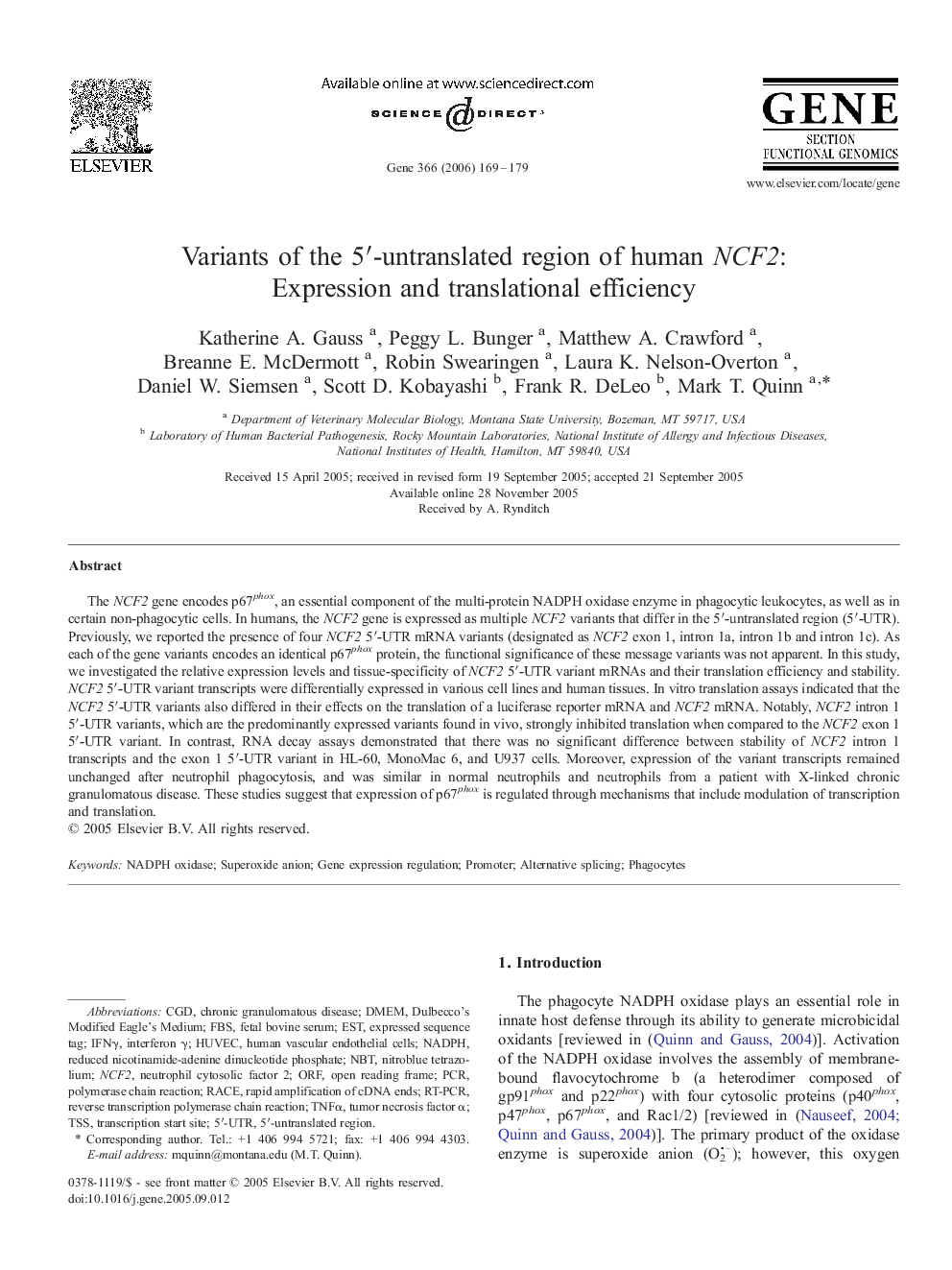| Article ID | Journal | Published Year | Pages | File Type |
|---|---|---|---|---|
| 2820392 | Gene | 2006 | 11 Pages |
Abstract
The NCF2 gene encodes p67phox, an essential component of the multi-protein NADPH oxidase enzyme in phagocytic leukocytes, as well as in certain non-phagocytic cells. In humans, the NCF2 gene is expressed as multiple NCF2 variants that differ in the 5â²-untranslated region (5â²-UTR). Previously, we reported the presence of four NCF2 5â²-UTR mRNA variants (designated as NCF2 exon 1, intron 1a, intron 1b and intron 1c). As each of the gene variants encodes an identical p67phox protein, the functional significance of these message variants was not apparent. In this study, we investigated the relative expression levels and tissue-specificity of NCF2 5â²-UTR variant mRNAs and their translation efficiency and stability. NCF2 5â²-UTR variant transcripts were differentially expressed in various cell lines and human tissues. In vitro translation assays indicated that the NCF2 5â²-UTR variants also differed in their effects on the translation of a luciferase reporter mRNA and NCF2 mRNA. Notably, NCF2 intron 1 5â²-UTR variants, which are the predominantly expressed variants found in vivo, strongly inhibited translation when compared to the NCF2 exon 1 5â²-UTR variant. In contrast, RNA decay assays demonstrated that there was no significant difference between stability of NCF2 intron 1 transcripts and the exon 1 5â²-UTR variant in HL-60, MonoMac 6, and U937 cells. Moreover, expression of the variant transcripts remained unchanged after neutrophil phagocytosis, and was similar in normal neutrophils and neutrophils from a patient with X-linked chronic granulomatous disease. These studies suggest that expression of p67phox is regulated through mechanisms that include modulation of transcription and translation.
Keywords
HUVECreduced nicotinamide-adenine dinucleotide phosphateNCF2IFNγCGDNBTRT-PCRNADPHORFTNFαTSSDMEMFBS5′-UTRDulbecco's modified Eagle's mediumnitroblue tetrazoliumsuperoxide anionESTNADPH oxidaseinterferon γchronic granulomatous diseaserapid amplification of cDNA endsGene expression regulationtumor necrosis factor αExpressed Sequence TagAlternative splicingtranscription start sitefetal bovine serumHuman vascular endothelial cellsPhagocytesopen reading frameRace5′-untranslated regionpolymerase chain reactionreverse transcription polymerase chain reactionPCRPromoter
Related Topics
Life Sciences
Biochemistry, Genetics and Molecular Biology
Genetics
Authors
Katherine A. Gauss, Peggy L. Bunger, Matthew A. Crawford, Breanne E. McDermott, Robin Swearingen, Laura K. Nelson-Overton, Daniel W. Siemsen, Scott D. Kobayashi, Frank R. DeLeo, Mark T. Quinn,
